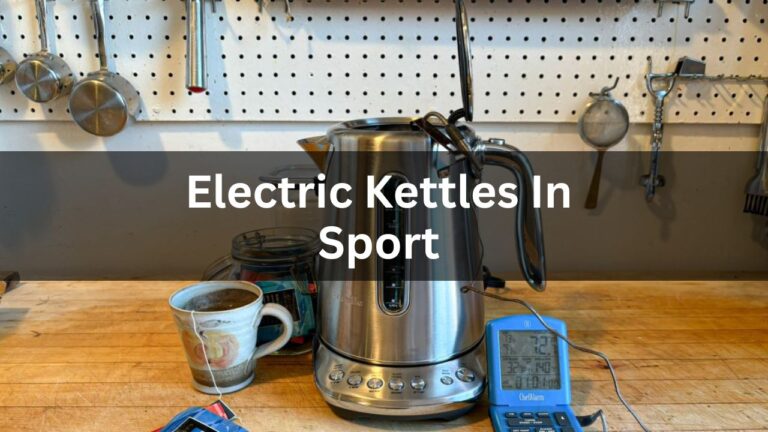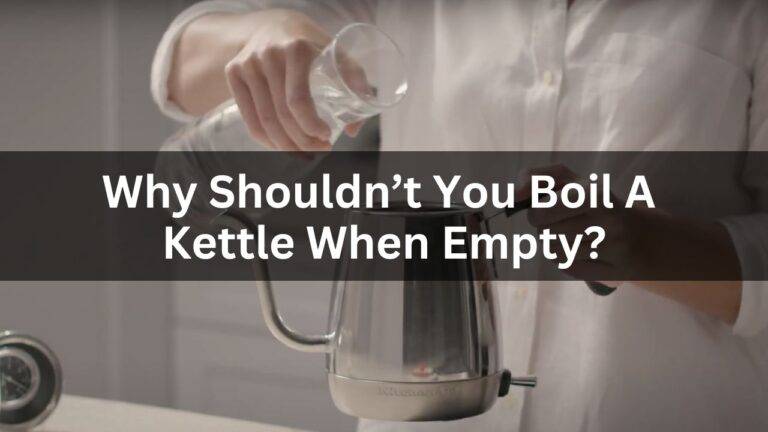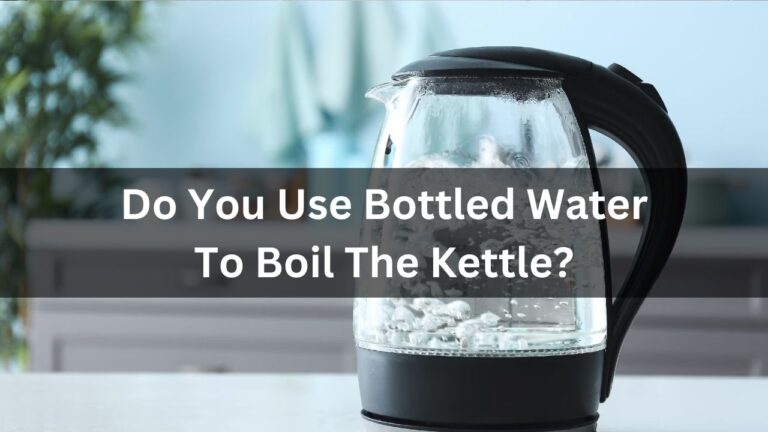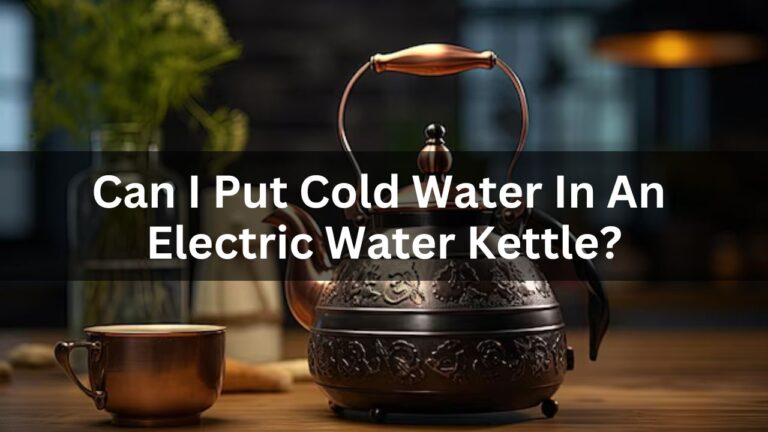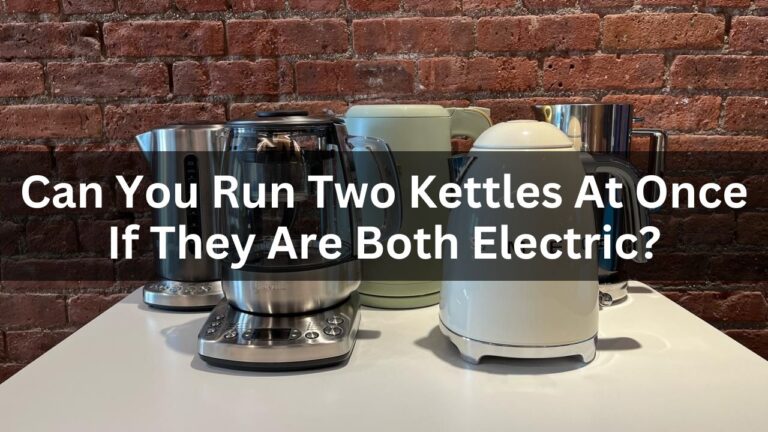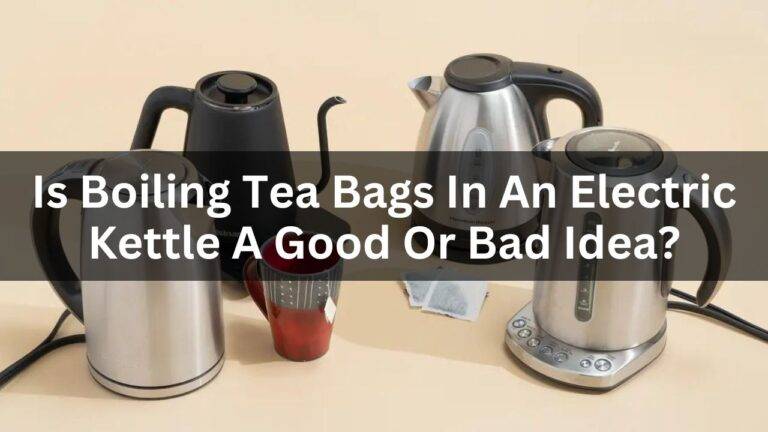Is It Dangerous To Boil Water In A Plastic Electric Kettle?
Are you also thinking of using a plastic electric kettle? So you must know about its bad effects before using it. Whether plastic kettles are good or bad, depends upon the type of used plastic.
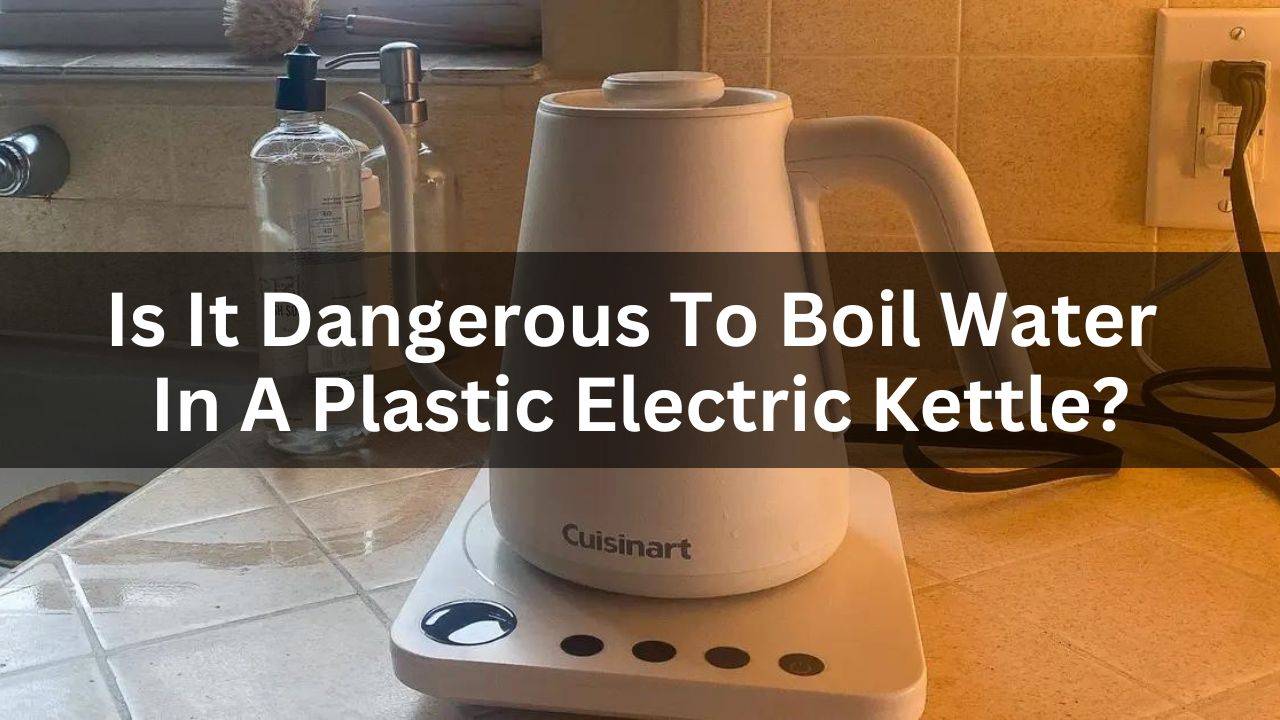
Are you also thinking of using a plastic electric kettle? So you must know about its bad effects before using it. Whether plastic kettles are good or bad, depends upon the type of used plastic.
Low-quality plastic adversely affects the health of users. So if you are thinking of using a plastic kettle, get a good quality plastic kettle.
Plastic kettles are considered harmful to human health because they can leach harmful chemicals like BPA. Mostly that kind of plastic is used in making kettles that are harmful for humans and animals.
We live in a world of plastic, from tanks to spoons everything is made up of plastic. While plastic has made our lives easier, it has also increased the risk of many dangerous diseases.
Now, just like everything else, kettles will be made of plastic. This article will explain in great detail the ill effects of plastic kettles.
Contents
Why Are My Plastic Electric Kettles Dangerous?
Not every plastic electric kettle poses a risk. Some can endure a specific temperature range. Even more hazardous is the plastic electric kettle that contains BPA. Because it is more prone to Plastic Leaching.
A liter of boiling water in a conventional plastic kettle can produce more than 10 million microplastic particles, according to research published in the journal “Nature Food.”
When you make tea or coffee, or even when you boil water in a skillet, these microscopic shards will inevitably find their way into your cup.

When we heat the water in a plastic kettle at very high heat. Plastic starts releasing dangerous chemicals including BPA.[1]
BPA:
BPA is the abbreviation of Bisphenol A. It builds up in a number of human tissues and organs. And it affects human health via many molecular pathways. It causes many diseases including obesity, infertility, diabetes, and cancer.
Also Read: Why Is My Kettle Making A High Pitched Noise?
Is Plastic Electric Kettle Dangerous For Infants Too?
Most mothers boil water for infants. They use this boiled water for making formula milk. There is no doubt that it has created a lot of ease in their lives. Because it does not require them to go to the kitchen to boil water.
They can easily boil water in their room at any time. However, researchers prove that it affects infants badly. Because boiling water may damage plastic while making formula milk for baby bottles, it’s not only kettles.
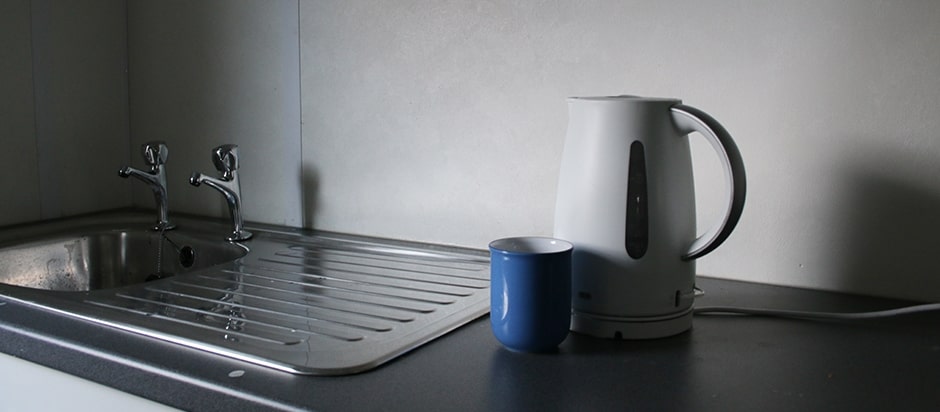
According to the study, a 12-month-old baby who feeds formula drinks takes in about 2.6 million microplastic particles every day on average. These microplastic particles badly affect the immune and nervous systems of infants.[2]
Also Read: Do You Use Bottled Water To Boil The Kettle?
Safety Guidelines To Boil Water In A Plastic Kettle:
All plastic electric kettles don’t have plastic leaching. A BPA-free plastic kettle Is good for boiling water. You should follow some guidelines to boil the kettle in a plastic kettle to avoid plastic leaching.
- You should buy a good quality plastic kettle. It will be expensive but it will save you from the side effects of plastic.
- Never raise the temperature beyond a certain limit while boiling water in a plastic electric kettle. Because plastic can release toxic chemicals at high temperatures.
- Don’t heat it empty. Because it increases the chance of plastic melting.
- If you feel any smell while boiling water in it, stop it immediately and do not use this water either.
- Avoid using a plastic electric kettle for too long. Because plastic deteriorates faster than metal.[3]
Also Read: How Do You Prevent Kettle From Temperature Swings?
Alternatives To Plastic Electric Kettles:
Many researchers don’t advise the use of plastic kettles due to their side effects. Plastic leaching occurs at high temperatures from them.
They can absorb and release toxic chemicals due to their porous structure. There are many options that you can use instead of plastic electric kettle.[4]
Stainless Steel Kettle:
Stainless steel is a better option than plastic one, if you want to avoid plastic leaching. It is also more durable.

Ceramic Electric Kettle:
Many people prefer to use ceramic electric kettles due to their appearance, durability, and heat-resistant nature.[5]

Glass Electric Kettle:
It consists of borosilicate glass that can endure high temperatures without any side effects. It is in demand due to its attractive structure and advantages.[6]

Also Read: Can I Put Cold Water In An Electric Water Kettle?
Conclusion:
After reading this article, you can decide on your own whether you should use plastic electric kettles or not. BPA is mostly present in all types of plastic material.
It is a highly toxic material. Because it can cause many diseases and affects the immune and nervous system.
That’s why it is strictly prohibited to use BPA-containing plastic electric kettles. They can leach toxic chemicals at high temperatures.
If despite all these things you still want to use a plastic kettle, then get a good quality plastic electric one.
FAQs:
Q: Why are electric kettles made of plastic?
A: Plastic is mostly used in kettles for making handles. Because it gives better insulation for the user from the main body of water. Heat treatment and alloying with different materials are two further ways to modify and enhance strength and toughness.
Q: Are plastic electric kettles healthy?
A: You can use good quality plastic electric kettles. But if you want to eliminate all health concerns, then it is considered good to use plastic-free kettles. Because they can leach chemicals at high temperatures that are dangerous for humans.
Q: Do kettles made of plastic get limescale?
A: Plastic kettles have less chance of getting limescale. Because mostly they contain polypropylene that doesn’t attract limescale. The limescale layer forms faster in a metal kettle than in plastic.
Q: Are BPA-Free Plastic Electric Kettles Safe For Boiling Water?
A: BPA badly affects human health. That’s why manufacturers are focusing on making BPA-free plastic electric kettles for the safety of water and beverages.
Q: Are all plastic electric kettles safe for boiling water?
A: Not all plastic electric kettles are suitable for boiling water. Ensure that the kettle is labeled as BPA-free and specifically designed for boiling water to minimize health risks.
Q: Can I safely boil water in a plastic electric kettle?
A: It depends on the kettle’s design and materials. Some plastic kettles are designed for boiling water, while others may release harmful substances at high temperatures.
Q: Are all plastic electric kettles unsafe for boiling water?
A: No, some plastic kettles are specifically designed for boiling water and are made from materials that withstand high temperatures without releasing harmful chemicals.
Q: What are the potential dangers of boiling water in a non-safe plastic kettle?
A: Boiling water in unsuitable plastic kettles may cause the release of harmful chemicals, impacting water quality and posing health risks. It can also lead to damage or deformation of the kettle.
Q: How can I identify if my plastic electric kettle is safe for boiling water?
A: Check the manufacturer’s information or product label for details on the materials used. BPA-free, food-grade plastics are generally safe for boiling water.
Q: Can I use any plastic container to boil water in an electric kettle?
A: It’s not recommended. Only use containers and kettles explicitly designed and labeled for boiling water. Non-safe plastics may release toxins when exposed to high temperatures.
Q: Are there alternatives to plastic electric kettles for boiling water?
A: Yes, consider using stainless steel or glass electric kettles, which are generally safe and don’t pose the same concerns as some plastic counterparts.
Q: Can boiling water in a plastic kettle affect the taste of the water?
A: Yes, if the plastic used in the kettle releases chemicals, it may alter the taste of the water. Safe materials should not affect the water’s flavor.
Q: Are there specific precautions to take when using a plastic electric kettle for boiling water?
A: Follow the manufacturer’s guidelines, avoid exceeding the maximum capacity, and ensure the kettle is clean. If there’s any sign of damage or deformation, replace the kettle.
Q: Can I use a plastic electric kettle for purposes other than boiling water?
A: It’s recommended to use plastic electric kettles only for their intended purpose of boiling water. Using them for other tasks may lead to safety and health concerns.
Q: What are the potential health risks associated with boiling water in a plastic electric kettle, and are there specific compounds or chemicals that users should be concerned about leaching into the water?
A: Explore health risks associated with boiling water in a plastic electric kettle and provide information on compounds or chemicals of concern.
Article you might be interested:
Is It Dangerous To Boil Water In A Plastic Electric Kettle?
Can I Have A Kettle In My University Room?

